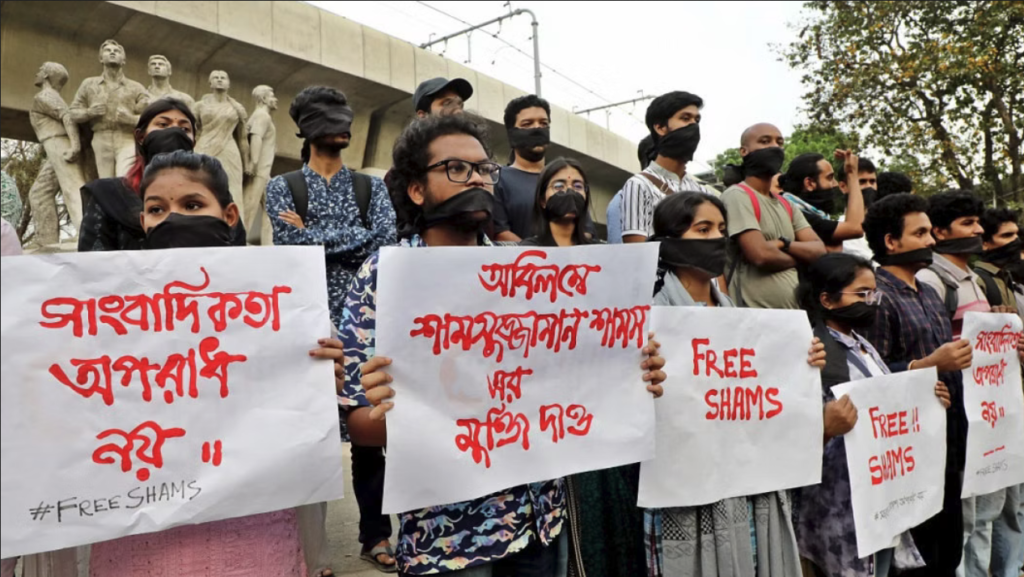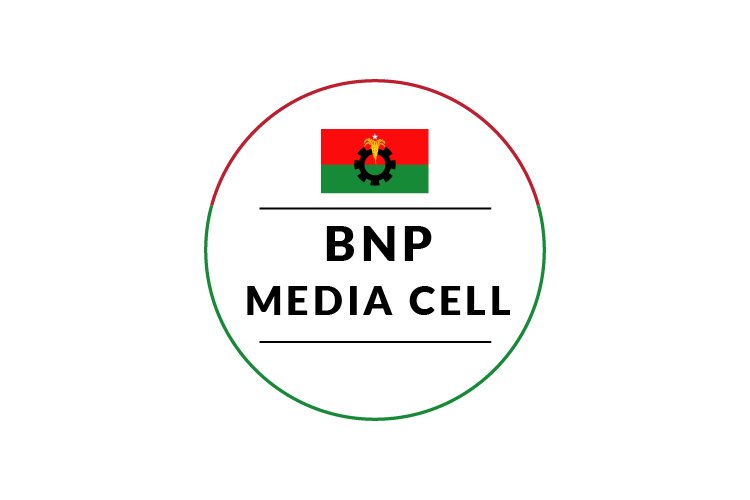A recent incident related to Bangladesh’s most prominent Bangla-language daily, Prothom Alo, exposed the state of press freedom in Bangladesh. The newspaper published a report on 26 March, Bangladesh’s Independence Day, covering the rising cost of living. The newspaper’s article and social media page published a card with a photo of a child looking at the National Martyrs’ Memorial. The photo contained a quote of a day laborer “we demand freedom of rice, fish, and meat.”
Within hours, the reporter of the news, Shamsuzzaman Shams was picked up from his home at the dead of night and held incommunicado for 22 hours. Two weeks later, Sheikh Hasina declared the newspaper the “Enemy of the People” in parliament. From the picking up of Shamsuzzaman to Sheikh Hasina’s ranting in the parliament, a case study of ways to undermine freedom of press in a developing state of Global South has been recorded for future studies.
The arrest of Shamsuzzaman was indeed a well-planned act. When the men in plainclothes picked him up, Syed Golam Kibria, general secretary of Dhaka North Jubo League, filed a case against him under the Digital Security Act (DSA). The next day the Home Minister Asaduzzaman Khan defended the act publicly by saying “Anyone can be enraged by the publication of false news on Independence Day.”
Shamsuzzaman was sent to jail on the next day, when a second DSA case was filed against him which also named, Matiur Rahman, the veteran editor of Prothom Alo, as a co-defendant.
Things turned even uglier on April 10, when Prime Minister Sheikh Hasina attacked Prothom Alo in parliament, clearly showing her disapproval and rage towards the daily. She said, “The name of the paper is Prothom Alo (first light), but it lives in darkness. Prothom Alo is the enemy of Awami League, democracy and the people of the country (..) “I am very sorry to say that they never want the stability to remain in this country.” And within moments, one of her Awami League thugs attacked the office of the newspaper in Dhaka’s Karwan Bazar area.
This is consistent with a worrying trend of repression of journalists. The daily Dinkal, the opposition’s mouthpiece, was shut down earlier this year and eleven journalists were assaulted in the Supreme Court while reporting on massive voting irregularities regarding the Supreme Court Bar Election.
According to a report released by the rights group Ain o Salish Kendra, at least 56 journalists from various media outlets have been tortured, harassed, threatened, or sued across the country in the last three months. This is disturbingly similar to the time when her father, Sheikh Mujibur Rahman, banned all but four publications in the country, establishing the gold standard for media repression in this country.
Bangladesh’s press freedom is under attack by the government, and the Prime Minister is at the forefront of this attack. This bodes ill for the future days when the current tyrannical dictatorship will intensify its attacks even more on democracy.


